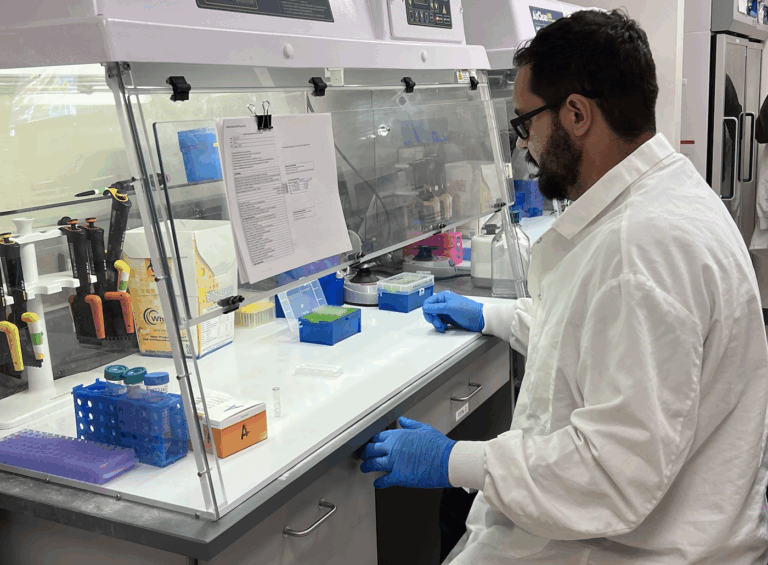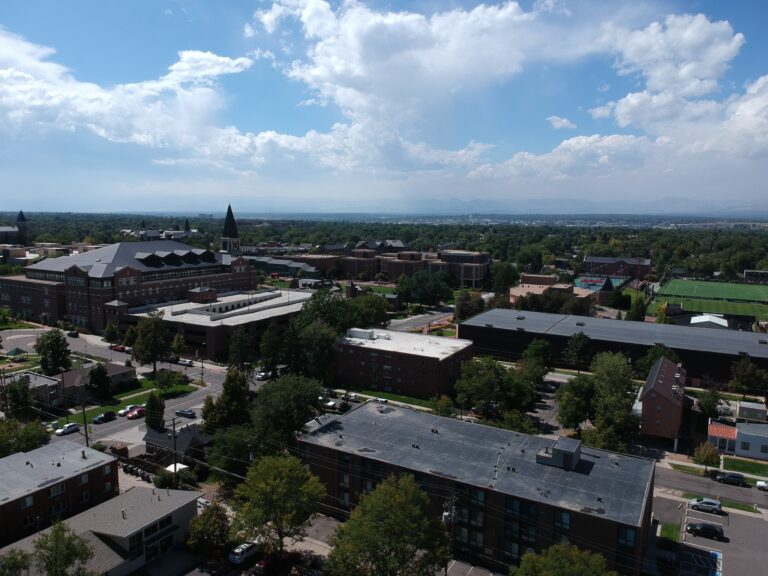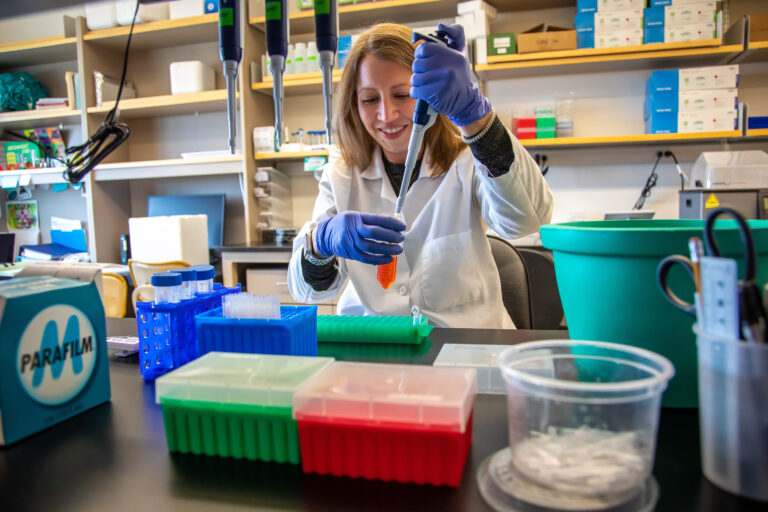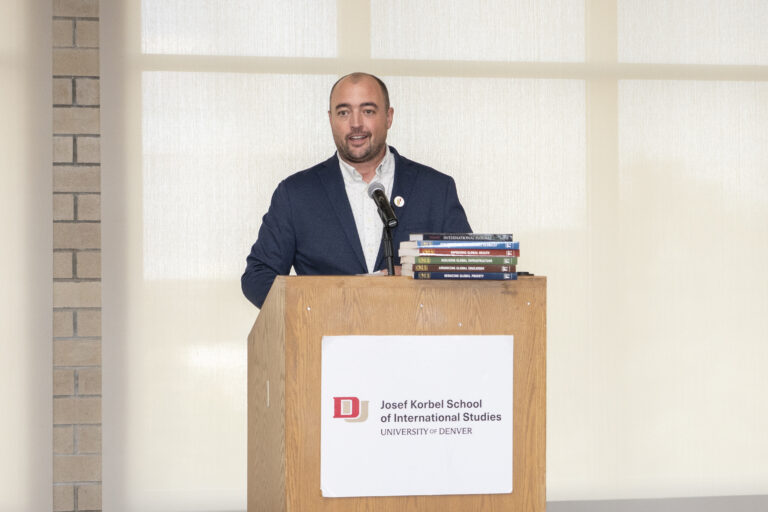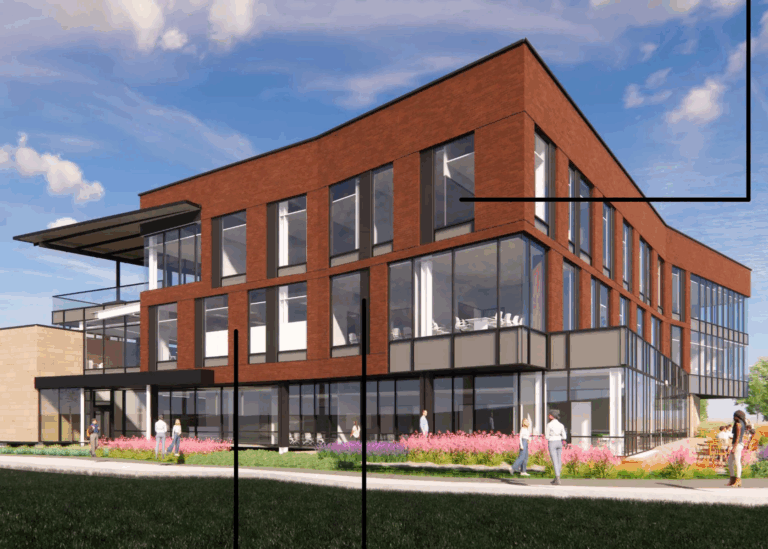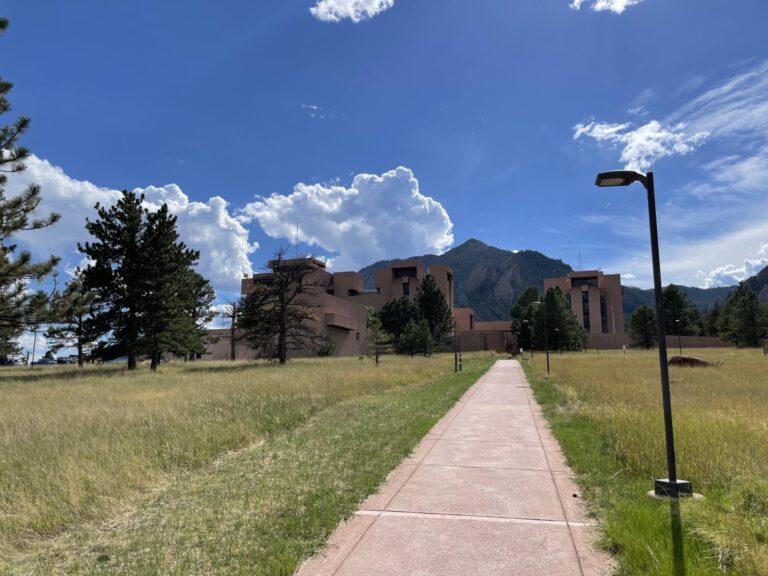If you are studying anything from molecules in the clouds to methane emissions from soils and landfills — and everything in between that affects the Earth’s climate — the opportunities for research in Colorado span the Front Range all the way north to Wyoming.
From Colorado State University, the University of Colorado Boulder and the Colorado School of Mines to many federal laboratories and research centers, Colorado’s Front Range ranks as the Silicon Valley of climate research.
That’s why the CO-WY Climate Resilience Engine was recently awarded $160 million over 10 years to help seed companies on the modern edge of research and turning good ideas into solutions. The “engine” will provide the power to move great ideas into a growing climate economy that will sustain itself by the support of the region’s climate research.
According to its website, the Engine “will develop and deploy advanced sensing, monitoring, and predictive analytics to anticipate, predict, and measure water scarcity, wildfires, and other extreme weather events. These forward-looking investments ensure that critical climate technologies, industries, and supply chains of the next century will be researched, designed, and made in America. The Colorado-Wyoming Climate Resilience Engine is the product of deep two-state collaboration, coalition building between research universities, federal labs, corporations, and nonprofits.”
Alan Rudolph, chief technology officer for the CO-WY Engine, is capping off a prestigious biological research career at the engine, having been a part of the team to seek the National Science Foundation funding.
“One of the reasons we won this award is because of the significant environmental data this region has its hands on,” Rudolph said. “That comes from national labs, NREL, the National Institute of Standards and Technology. They have deep environmental assets from space to soil.
“The climate resilience for us starts with a deep understanding of climate data in our region and how we can apply it,” he added.
The CO-WY Engine is about to award roughly $2 million to startups looking to create solutions in the economy to deal with climate-related problems. Grants will be focused on areas that include methane analysis, soil carbon capture and analytics, wildfire risk and prediction, extreme weather modeling, water availability prediction, and complex earth sensing. Winning projects get 12 months of support with a dedicated client director and mentorship.
The engine is working with universities on a variety of research. As an example, the engine is working with a startup that is creating a methane-sensing nose ring for cows. This is a way to solve the concern of methane in the atmosphere from cattle called enteric methane. While gauging methane is easier in the feedlots, the nose ring may be a way to devise a way to sense methane emissions from open range cattle as well.
Research continues in the areas of “decarbonizing water, methane mitigation in ag communities and landfills are projects we’re working on, wildfire both in better prediction and mitigation using more autonomy, can we increase firefighting at night, or use of drones, or automation,” Rudolph said.
CSU has many ongoing climate research projects involving soil, microbiomes, shading the sun, and tracking methane sources. According to CSU’s article, “What’s the biggest climate challenge?” Eliisa Carter and Courtney Schultz, report:
“Consider the challenges of reducing carbon emissions in our farms and food systems or addressing smoke impacts from wildfires. These challenges require studying the science of smoke composition or soil carbon cycling while also looking at human health impacts, shifting growing seasons and how to incentivize less carbon-intensive practices and more climate-adaptive forest management.”
CSU is bringing that research into its programming through its Climate Change Initiative, which just completed its first year. In 2025, the university plans to host a Climate Showcase to highlight its areas of research.
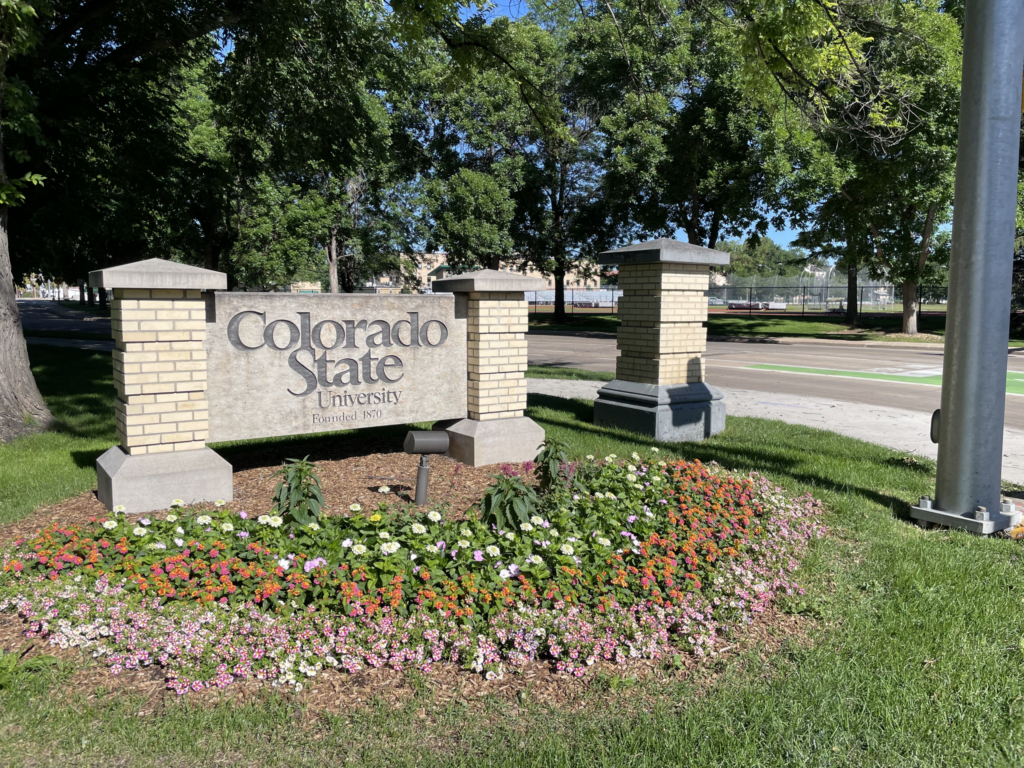
CU also is a major player in the CO-WY Climate Resilience Engine.
“The CO-WY Engine will build climate resilient communities by combining three of our great strengths at CU Boulder: our research into the challenges of climate, our track record for translating resulting innovations into real-world solutions, and our regional partnerships,” Bryn Rees, associate vice chancellor for research and innovation and managing director of Venture Partners at CU Boulder and one of five co-principal investigators of the CO-WY Engine, said in a news release.
Rees said better wildfire detection, for example, could be one outcome of the CO-WY Engine.
“If we can detect and respond to a wildfire 20 or 30 minutes earlier, it can make a difference in being able to preserve a building and save many lives — and maybe also have time to respond early enough to subdue a fire before it gets totally out of control,” Rees said.
There are multiple solutions out there for the problems that man has put on our planet; but there are more yet to be discovered.
Of course, Colorado is replete with oil and gas and agriculture, and there is no shortage of research into making both of these sectors less intense in our environments. Cargill, for example, just gave CSU $1 million to study ways to reduce the environmental impact of the beef industry by working with CSU on creating a better feedstock to reduce enteric methane from cows. The effects of different feeding strategies on methane emissions, for example, will be a focus of Cargill’s AgNext project at Colorado State University’s Climate Smart Research Facility over the next two years.
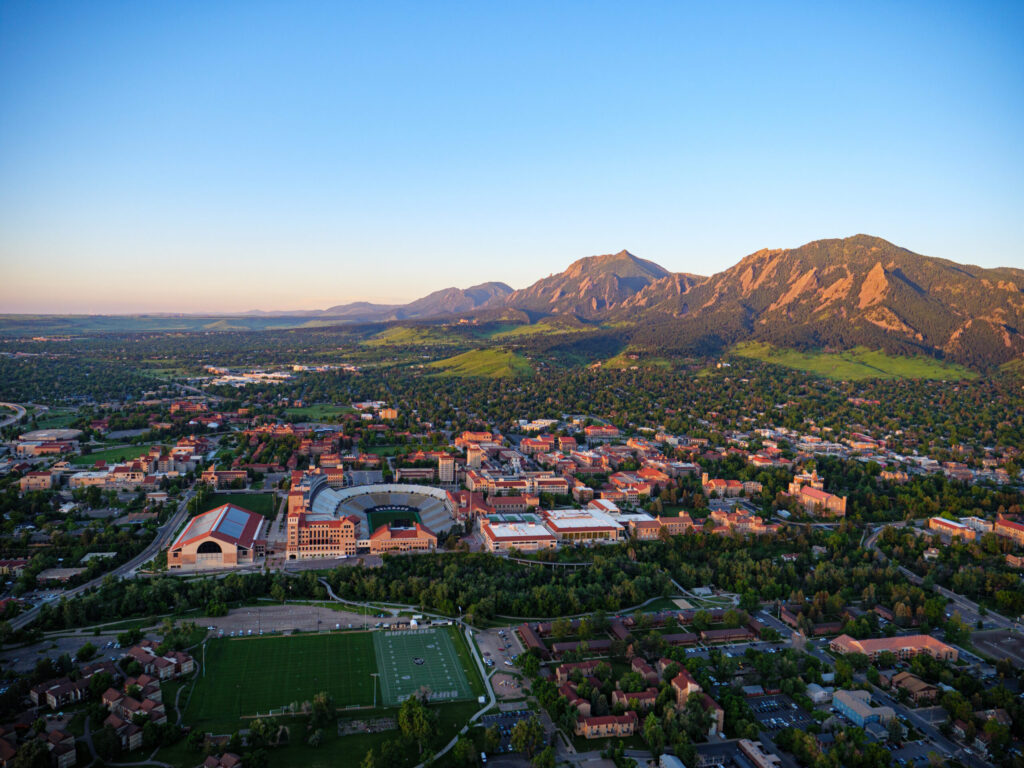
Carbon in the soil from wildfires is another area of research into climate. “We don’t have a good measurement of how long that stays in the soil,” Rudolph said. “The engine is likely to take up projects to better measure burnt carbon. And then we’ll look at ways to scale it …. as an opportunity to mitigate carbon sequestration in the soil.”
Rudolph said Colorado is an ideal spot to study climate change — with wildfires and drought and smog — and it’s also ideal to find ways to mitigate it and find workable solutions to climate-related problems.
While Colorado’s universities often work together on projects, it hasn’t quite happened that way with national labs, Rudolph said.
“One project we’re teeing up is NREL (the National Renewable Energy Laboratory) and NOAA (the National Oceanic and Atmospheric Administration) to work together on merging climate and energy models, and applying it to the region,” Rudolph said. “Merging of assets in the region that are deep around some of these environmental and climate issues, is another area the engine is very much focused on.”
Research is all about solving real-world issues, Rudolph said. And there is no shortage of problems that need solutions. “Denver wants to know more accurately about the heat landscape to manage energy,” he said. “Denver Water wants to know more about water availability and predictions from snowpack.” Yardsticks, he said, just won’t cut it any longer.
A workforce element also is a big piece of this engine.
“To have a lasting impact on the region, there also will be a thorough upscaling of the workforce to bridge the knowledge gap with new technologies,” Rudolph said.
This fall, CSU students can enroll in the university’s new 12-credit certificate program Climate Change and Society, which is focused on helping students understand climate change and empowering them to come up with solutions. Soon, students will be able to major and minor in climate change at CSU, reports Courtney Schultz, director of the CSU Climate Initiative.
That’s another way universities tie into this research, by preparing students for the emerging job market. The engine sponsored a soil carbon bootcamp at CSU, for example.
“There’s a workforce component that will drive the transformation that we need, as well as we are backing good ideas,” Rudolph said.
The beauty of Colorado’s research on the environment as a whole is the collaboration, said Seth Marder, director of the Renewable and Sustainable Energy Institute at CU. His program looks at environmental sustainability, but the cohesive nature of research in Colorado is what is appealing.
“What is sort of unique to Colorado, if you look at other states … the level to which they work cooperatively to move forward on this shared vision of what we need to be … we’re very special in that regard if not unique.
“There are many aspects to the issue that we face, the engine is funding that deals with some of them, but many other aspects and one of the things we’re thinking about very carefully in a proactive way… is creating the entire ecosystem … and the notion we do it in partnership.”
Author
-
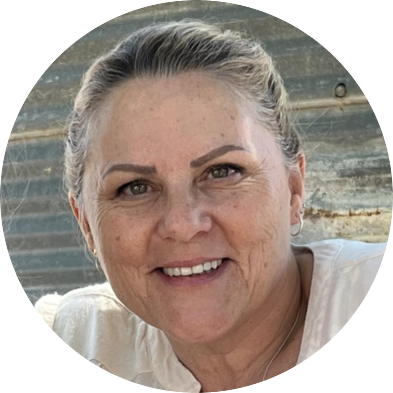
Sharon Dunn is an award-winning journalist covering business, banking, real estate, energy, local government and crime in Northern Colorado since 1994. She began her journalism career in Alaska after graduating Metropolitan State College in Denver in 1992. She found her way back to Colorado, where she worked at the Greeley Tribune for 25 years. She has a master's degree in communications management from the University of Denver. She is married and has one grown daughter — and a beloved English pointer at her side while she writes. When not writing, you may find her enjoying embroidery and crochet projects, watching football, or kayaking and birdwatching on a high-mountain lake.
View all posts
